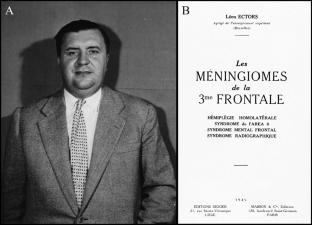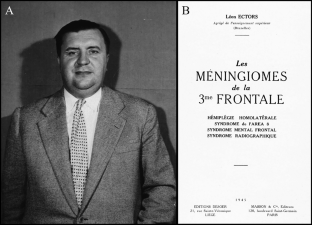Syndrome of the third frontal convolution: Léon Ectors´ legacy on paradoxical ipsilateral hemiparesis
Abstract
Since the crossed control of sensitive-motor body functions by the contralateral cerebral hemispheres was recognized in the early 18th century, clinicians have been baffled by patients developing a motor deficit involving the extremities on the same side as an intracranial lesion. In the first third of the 20th century, three main hypotheses were proposed to explain this so-called ipsilateral or paradoxical hemiparesis: (1) the absence of decussation of the corticospinal tracts; (2) diaschisis, or blocking of the normal input to a brain region anatomically distant from the injured site; and (3) compression of the contralateral cerebral peduncle against the tentorial border, also known as the Kernohan–Woltman notch phenomenon. Here, we deal with the less widely known contributions of the Belgian neurosurgeon Léon Ectors, who included this paradoxical deficit within a neurological syndrome he considered highly specific for an early diagnosis of those meningiomas growing over the third frontal convolution. The present manuscript includes a systematic review of the cases of ipsilateral hemiparesis secondary to intracranial masses reported in ancient and modern scientific medical literature. We also address in-depth the physiopathological theories accounting for this syndrome and contrast them with Léon Ectors’ observations.



 求助内容:
求助内容: 应助结果提醒方式:
应助结果提醒方式:


